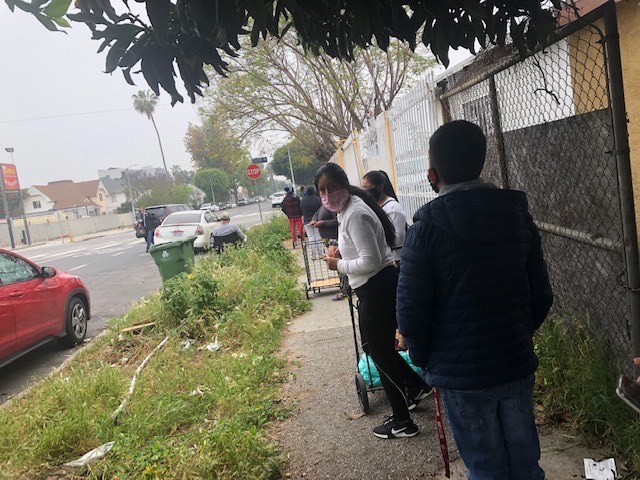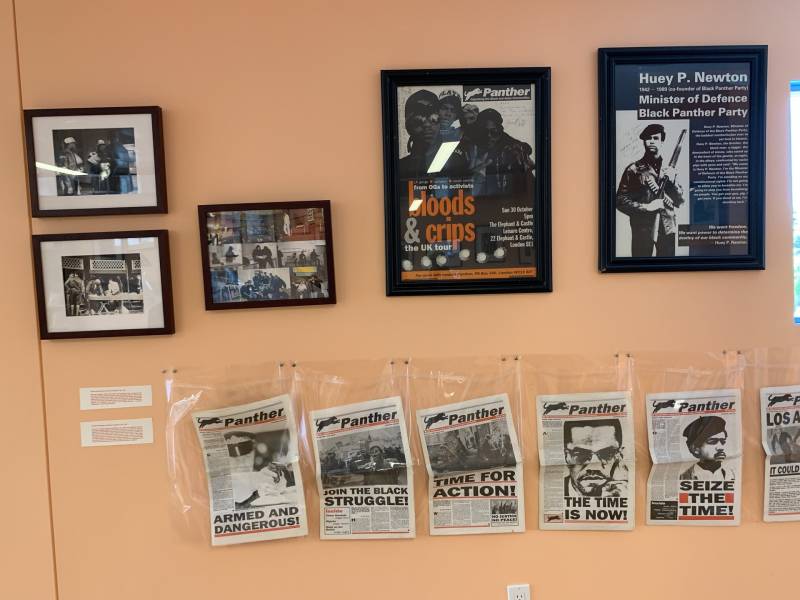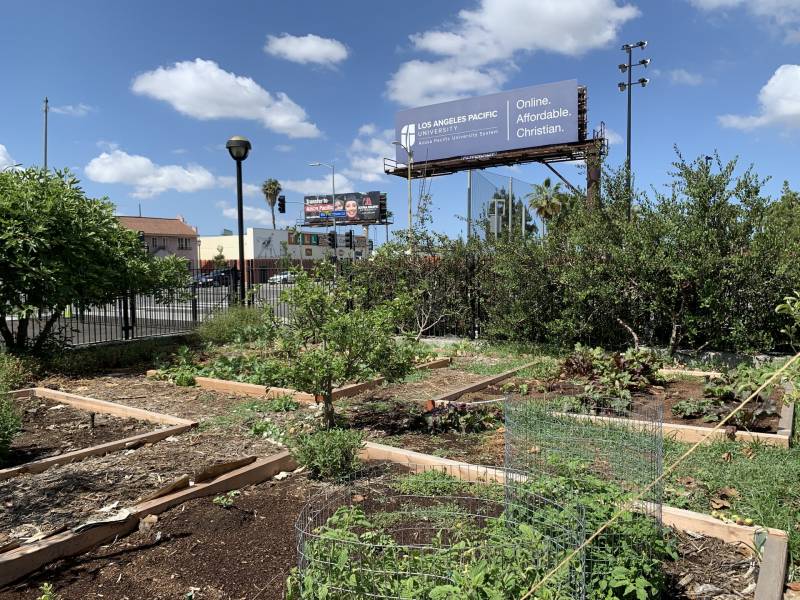Across California, 43 percent of all Latinx parents said they were forgoing some part of the family meal, according to new data from the Education Trust-West. Diosmery Durán is one of them.
She's not alone: The Education Trust-West's statewide survey reached 600 families with children under 5-years-old, painting a dire picture.

The pandemic has laid bare contradictions in the country’s food system. As farmers report rotting crops and dumping milk, hunger is growing. A Brookings Institute analysis found nationwide nearly one in five families with children under 12 are experiencing food insecurity. California parents are also struggling to feed their families, and food banks are seeing demand dramatically increase.
“Parents are struggling with basic needs,” said Dr. Elisha Smith Arriaga, executive director of the Education Trust-West.
Each day, Durán or her husband wait in the various lines where food is distributed. She communicates constantly with other mothers to find out which location is giving out milk, diapers, or other goods. And she often shares whatever the family gets.
“We all just try to help each other,” Durán said.
Durán realized she needed help applying for government food assistance (CalFresh). While waiting in a food pantry line she heard that a local organization Community Services Unlimited (CSU) was providing assistance with applications, so she called. CSU has seen a nine-fold increase in calls for CalFresh application assistance since the COVID-19 pandemic struck.
While food pantries, nonprofit groups, churches and schools have become hubs for hungry families to receive food, Community Services Unlimited believes there is a better way to solve hunger issues. Heather Fenney, co-executive director of the organization said they are working to create more empowered food communities.
“At a time like this, the need for our communities to have greater self-sufficiency around food is really critical,” Fenney said.
The organization was originally founded as part of the Southern California Chapter of the Black Panther Party in 1977. They work to upend the injustices of a food system steeped in charity with poor quality, and unhealthy foods. The organization works to incorporate the local community in food production and distribution. They imagine a world where locally grown organic produce is affordable and plentiful enough to feed the community.

The local food system begins with a miniature urban farm on a corner block, close to the skyscrapers of downtown LA — on the edge of a community home to many low-income families of color.
On one day KQED visited the farm, Fenney sat on her knees, pulling out weeds that sprung up after the April rains. “We've got carrots growing,” she said pointing to a vibrant patch of green springy leaves. “We planted these just before the stay at home orders went in place and we're starting to harvest them now.”
In this green oasis in the middle of the city, a plethora of fruits and veggies are sprouting. “Right now what we're focusing on is growing food that we can get out into the community,” Fenney said.
“We're growing collard greens, Swiss chard, lettuce, mustard greens, beets, carrots, a couple of different kinds of kale, lettuce mixes,” she said. There are tomatoes, cucumbers, leaks, eggplants, onions, and fennel. The farm also portends a tropical island, ringed with banana trees and fruits such as loquats.

The range of produce is hard to find in South L.A., even when there’s not a pandemic. The area has been labeled a food desert, and community activism efforts over the years have brought small victories, like the opening of a Trader Joe’s near the USC campus which sells organic produce.
During the winter, CSU’s mini-farm buzzed with preschoolers, parents, and teens, all contributing and learning how to grow food. But since the pandemic, the organization has moved quickly to help families grow food at home.
“What we focus on is showing very simple, affordable methods for growing food in whatever kind of space,” Fenney said, “a patio, a stairwell, a little plot of dirt, anything you have.”
"feed" - Google News
May 18, 2020 at 02:59AM
https://ift.tt/2WEdPbQ
Some Parents Skip Meals to Feed Their Children, but Who Will Feed the Adults? One Organization has an Answer - KQED
"feed" - Google News
https://ift.tt/2z3xEQN
https://ift.tt/2yko4c8
Bagikan Berita Ini














0 Response to "Some Parents Skip Meals to Feed Their Children, but Who Will Feed the Adults? One Organization has an Answer - KQED"
Post a Comment